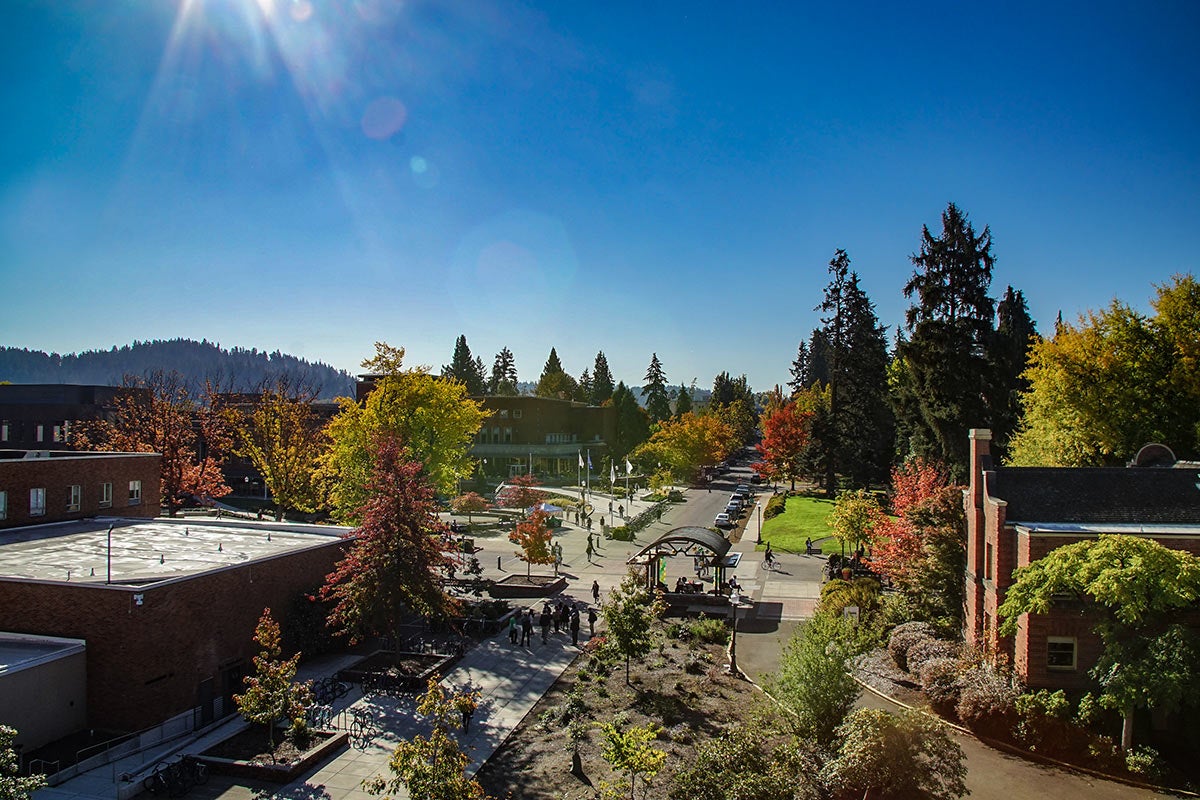 Fall term at the UO looks beautiful in this view looking south from the Design Library in Lawrence Hall on the Eugene campus
Fall term at the UO looks beautiful in this view looking south from the Design Library in Lawrence Hall on the Eugene campus
This fall is truly like no other.
The recent tragic wildfires have only added to the many challenges and uncertainties 2020 has presented. These times, though, reaffirm why a university community is so vital to innovation, change, and hope. As we begin the academic year, we are firmly committed to teaching effectively in a changed context, to contributing to the recovery of the region, and to being more inclusive and more deeply engaged with social justice questions that impact our disciplines and our students.
Across the College of Design community, the necessity of our work—to help us respond to urgent threats like the wildfires and the pandemic, to plan and design for the long term, and to make meaning of our experiences—has never been clearer. We are engaged in work that has an impact. Our students want to make a difference, to raise difficult questions, and to find new, sustainable solutions.
While none of our classes will be “normal” this term, our options and adaptations have expanded considerably. Faculty members are experimenting with varying levels of hybrid engagement, using new tools for synchronous and asynchronous teaching and learning. Some classes are in person and many are remote, but all students will have access to studios, shops, computer labs, libraries, and other resources to facilitate their work.
Our research continues, including some work directly engaged in timely questions such as Landscape Architecture Professor Bart Johnson’s research exploring stakeholder collaborations to manage wildfire risk or the Institute for Health in the Built Environment’s leading contributions to combating COVID-19. Other work helps us plan for the future, such as the Institute for Policy Research and Engagement’s community resilience work, or design for clean energy as in Architecture students’ Solar Decathlon prize-winning work. Still other research helps us understand our context in new ways, like Professor of Art Carla Bengtson’s exploration of non-human communication or Master of Community and Regional Planning student Aimee Okotie-Oyekan’s investigation of environmental and racial justice.
We know, now more than ever, that an excellent education must include preparing students to be productive contributors to a dynamic, pluralistic society. Toward that goal, the College of Design is working in innovative ways on issues of equity, justice, and inclusion in our own university and in our fields.
We know that moments of profound change like those brought in 2020 are also tremendous opportunities for transformation and invention. Join us as we embark on this new academic year—and rise to the moment.
